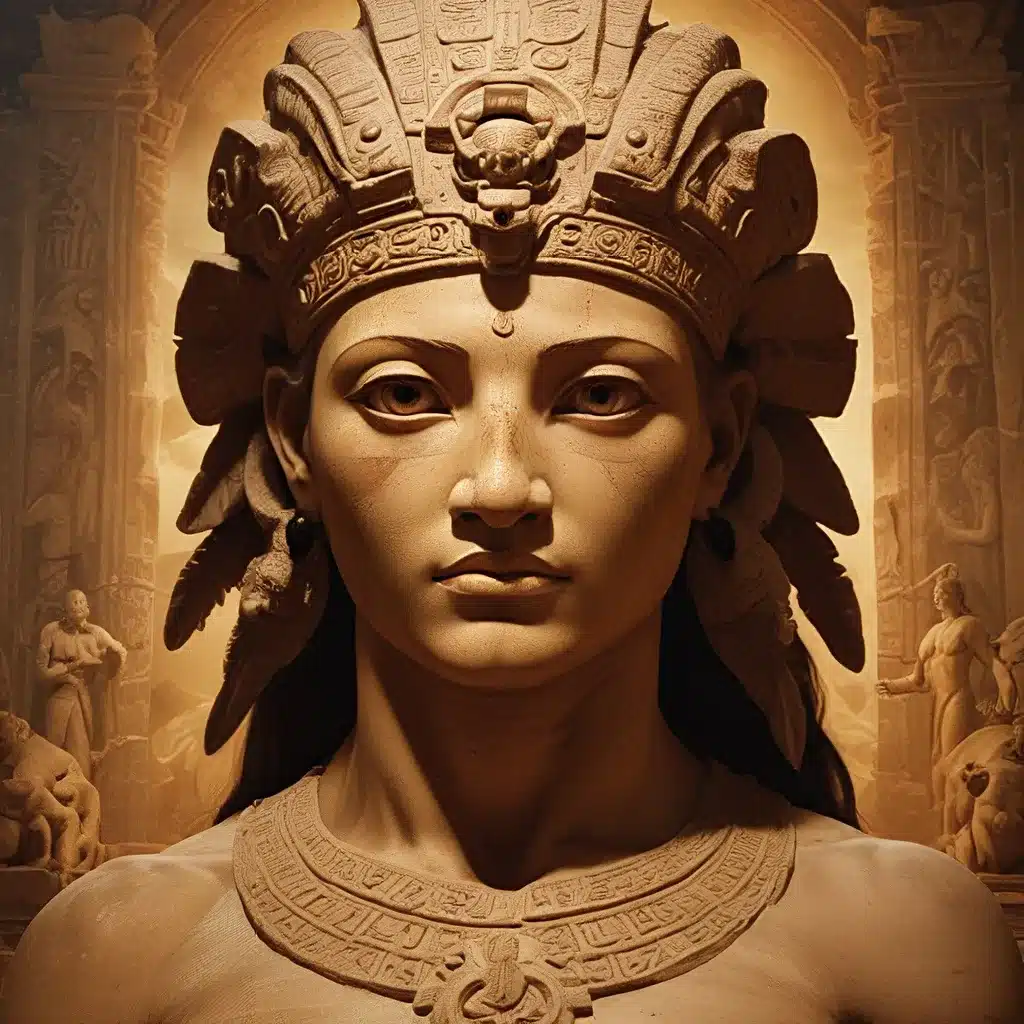
Unraveling the Mysteries of Belief Systems in the Ancient World
Throughout human history, the concept of divinity has captivated the imaginations of countless civilizations. From the Rig Veda’s poetic musings on the origins of the universe to the intricate pantheons of Greek, Roman, and Mesopotamian gods, the ways in which ancient cultures perceived and revered their deities have left an indelible mark on our understanding of the past.
In this comprehensive exploration, we will delve into the diverse belief systems of ancient societies, examining how their perceptions of the divine shaped their worldviews, social structures, and cultural practices. By unraveling the intricate tapestry of these primal pantheons, we can gain valuable insights into the complexities of ancient mindsets and the evolution of human spirituality.
Deities of the Rig Veda: Navigating the Cosmic Mysteries
The Rig Veda, one of the oldest and most revered texts in human history, presents a remarkably agnostic and introspective perspective on the nature of the divine. Rather than affirming the existence of a singular, all-powerful deity, the Rig Veda’s Nasadiya Sukta (Hymn of Creation) explores the profound mysteries surrounding the origins of the universe.
The hymn begins by acknowledging the absence of conventional notions of existence and non-existence, a metaphysical void where even the fundamental elements of nature are absent. From this primordial darkness, the text introduces the concept of “The One” (Ekam), a singular, enigmatic force that breathes life into the cosmos, driven by an innate “desire” (Kama) – the first seed of consciousness.
This creative power, often described as “tapas” (heat or energy), is seen as the catalyst for the universe’s emergence, a sentiment that resonates with modern cosmological theories emphasizing the role of immense heat and energy in the birth of the cosmos. The hymn’s poetic exploration of cosmic dimensions, potentialities, and the limits of knowledge further underscores the Vedic sages’ profound understanding of the complexities of existence.
The Pantheons of Greece and Rome: Anthropomorphic Deities and Celestial Powers
In contrast to the metaphysical musings of the Rig Veda, the Greek and Roman pantheons presented a more anthropomorphic approach to the divine. Figures such as Zeus, Poseidon, and Aphrodite were imbued with distinctly human-like qualities, reflecting the deep-seated connection these ancient civilizations sought to establish between the celestial and the terrestrial.
The Greek gods, for instance, were often portrayed as embodiments of natural phenomena, possessing both virtues and flaws that mirrored the human experience. This personification of the divine allowed the Greeks to navigate the complexities of their world through the lens of relatable, yet powerful, supernatural beings.
The Roman pantheon, while drawing heavily from its Grecian counterpart, also incorporated indigenous Italian deities, such as Janus, the god of beginnings and transitions. This blending of belief systems reflects the adaptability of ancient religions, as they sought to accommodate the diverse cultural influences within their expanding empires.
Mesopotamian Deities: Cosmic Order and Celestial Hierarchies
In the ancient Mesopotamian civilizations, the perception of the divine was inextricably linked to the celestial realm, with the sun, moon, and stars playing a central role in their pantheons. Deities such as Enlil, the god of wind, and Inanna, the goddess of love and warfare, were believed to exert direct influence over the natural world and the affairs of humankind.
The Mesopotamian cosmological worldview was largely structured around the concept of cosmic order, with each deity occupying a specific position within a hierarchical celestial bureaucracy. This intricate system of belief reflected the sociopolitical structures of Mesopotamian societies, where power and authority were often derived from one’s proximity to the divine**.
The Mesopotamian pantheon also incorporated astral deities, such as Ishtar, the goddess associated with the planet Venus, highlighting the deep-rooted connection these ancient civilizations shared with the celestial realm. This astrological dimension of Mesopotamian religion would later influence the development of astronomical knowledge and divination practices across the ancient world.
Unveiling the Significance of Ancient Belief Systems
The diverse belief systems of the ancient world, from the metaphysical musings of the Rig Veda to the anthropomorphic deities of Greece and Rome, and the celestial hierarchies of Mesopotamia, reveal the richness and complexity of human spiritual expression.
By examining the ways in which these ancient civilizations perceived the divine, we can gain valuable insights into their worldviews, social structures, and cultural practices. These belief systems not only shaped the lives of individuals within these societies but also profoundly influenced the trajectory of human civilization** as a whole.
As we delve deeper into the primal pantheons of the past, we are confronted with the enduring questions that have captivated the human imagination for millennia: the nature of existence, the origins of the universe, and the role of the divine in our lives. By embracing the agnostic spirit of the Rig Veda and the anthropomorphic deities of Greece and Rome, we can expand our understanding of the diversity and complexity of human spirituality, ultimately enriching our own perspectives on the mysteries of the cosmos.
Exploring the Legacy of Ancient Belief Systems
The enduring legacy of ancient belief systems can be seen in their continued influence on modern religious, philosophical, and cultural practices. The Lost Kingdoms website delves into the rich tapestry of ancient civilizations, exploring the significance and impact of their belief systems on our understanding of the past and our shaping of the future.
Through comprehensive research, expert analysis, and engaging storytelling, the website illuminates the complexities of ancient spiritual and cosmological worldviews, empowering readers to connect the dots between the past and the present. Whether you’re a history enthusiast, a scholar of ancient religions, or simply curious about the mysteries of the human experience, the Primal Pantheons article on The Lost Kingdoms offers a captivating and insightful exploration of the divine realm in the ancient world.


